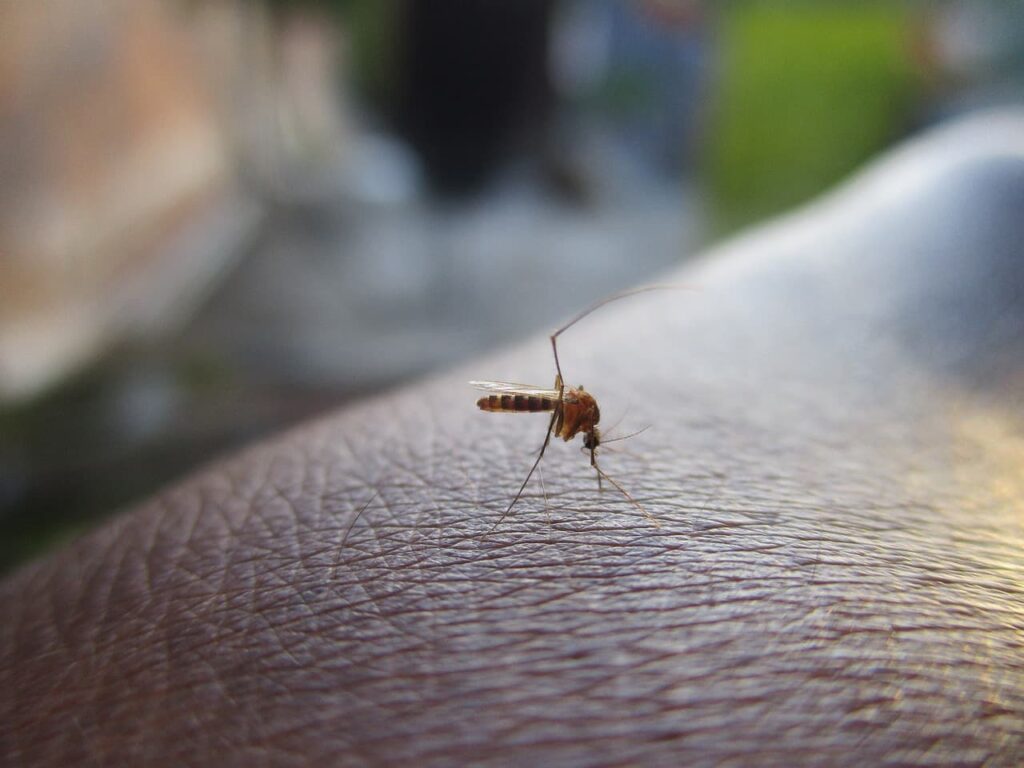Among common pests, mosquitoes might be the least desirable. They can spread serious diseases in certain cases, make high-pitched, irritating noises, and cause painful bites that leave welts. Nothing ruins a day more quickly than those bothersome mosquitoes, as we know here on Long Island.
You have undoubtedly encountered the flying, bloodsucking insect if you enjoy being outside at night, live near bodies of water, or are an avid outdoor enthusiast.
If you are tired of dealing with these pests every night and looking for mosquito control in Long Island, NY, then check out the services that Optimum Pest Control can provide for you.
Mosquito Control in Long Island, NY
Although they are primarily seen as a bothersome pest, mosquitoes can occasionally spread viruses to humans and certain animals and these viruses have the potential to be fatal.
A typical mosquito bite can be uncomfortable, but certain invasive mosquito species on Long Island can transmit diseases like the West Nile virus. In or around 2021, West Nile virus tests on mosquitoes in Suffolk County revealed positive results. Again, at least a dozen people in New York have contracted the West Nile virus from mosquitoes in 2021.
Since then, health officials in New York have advised people to use repellents and remove standing water to curb the infestation of West Nile virus.
Why Do Mosquitoes Pose Such a Risk?
One of the most dangerous animals on the earth is thought to be the mosquito. An estimated one million deaths per year are attributed to these tiny pests, and every thirty seconds, a child passes away from a disease carried by mosquitoes. Although Malaria is the most prevalent of these illnesses, mosquitoes can also transmit West Nile Virus, Dengue Fever, Arboviral, Rift Valley Fever, and Yellow Fever.
Even though they can be a nuisance to people, mosquitoes are vital pollinators in the ecosystem, just like bumblebees. They take part in the development and propagation of seeds and aid in the fertilization of plants.
In addition, because they serve as a food source for other animals, mosquitoes play a significant role in the food chain. Turtles, bats, birds, and dragonflies all have mosquitoes in their diet.
Nevertheless, they can also be hazardous because they feed by biting humans or animals, sucking tiny amounts of blood, and then leaving behind saliva that can itch, produce a rash on the skin, or transmit diseases. Because mosquitoes are known to carry disease, getting bitten by one can be dangerous. Among the illnesses that mosquitoes can spread are the following:
- Zika Virus: Zika is spread by mosquitoes, which subsequently infect humans, and then between humans through sexual contact. Headaches, aches in the joints and muscles, a slight fever, a skin rash, and watery eyes are some of the symptoms. Babies in utero are also impacted by the virus.
- West Nile Virus: Headaches, fever, stiffness in the neck muscles, disorientation, convulsions, weak muscles, and coma are all symptoms of the potentially fatal West Nile virus.
- Malaria: Malaria causes symptoms like fever, headaches, and vomiting, which can also be fatal.
 What is the West Nile Virus?
What is the West Nile Virus?
Through mosquito bites, humans and certain animals can contract West Nile virus (WNV), an infection that can result in severe illness and, in rare circumstances, even death.
Mild cases of mosquito-borne illness can cause fever, headaches, body aches, and in rare cases, swollen glands or a skin rash. Whereas severe WNV patients typically experience sudden onset headache, high fever, stiff neck, weak muscles, altered mental status, tremors, convulsions, paralysis, inflammation of the brain or spinal cord membranes, or coma.
Since antibiotics do not treat viral infections, there is no particular treatment for WNV. Patients receive supportive therapy in addition to symptom treatment. Most people who have mild cases of WNV recover fully. Supportive therapy in severe disease cases may involve hospitalization, IV fluids, respiratory support, and treatment for any secondary infections that may arise.
Death is extremely rare among individuals with severe WNV disease (less than 1 in 150); nearly all patients make a full recovery. However, it is still important to protect yourself and your loved ones from potential risks.
It is strongly advised to take the following safety measures to lower the risk of contracting diseases carried by mosquitoes, such as the West Nile virus:
- When you are outside during the day and there are mosquitoes around, try to keep your skin as covered as possible. Put on socks, long sleeves, and pants.
- When applying insect repellent to exposed skin, read the label carefully.
- Make sure to have screens in the windows and doors of your home. Also, regularly check for holes, rips, and tears in the screens.
- Remove any standing water from your yard and the areas surrounding your house where mosquitoes can breed, such as wheelbarrows, plastic containers, wading pools, clogged drainpipes, and ceramic pots. Additionally, replace the water in bird baths twice a week if you have any.
Signs of a Mosquito Infestation
Although being bitten is the most obvious indicator that you have a mosquito infestation, you should also watch out for the following signs:
- High-Pitched Buzz: Many people identify that they have a mosquito problem by hearing the buzzing of these pests, in addition to being bitten by them.
- Standing Water: If you have a lot of standing water in your yard, you can be sure that mosquitoes are on their way in even if you haven’t noticed an infestation yet.
- Visual Clues: Mosquitoes are typically known to be most problematic in the evening. That being said, it’s highly probable that you have a full-blown mosquito infestation in your yard if you begin to see them even during the day.
How Often Will I Need Mosquito Control?
Regardless of the current controls in place, pests can still arise at any time. In order to guarantee sufficient and lasting protection, pest management is a continuous and regular procedure. This is due to the fact that pest infestations begin where there is access to food, water, and shelter.
When it comes to mosquitoes, one visit usually eradicates them for three weeks. For your yard, this means that six visits will be required throughout the season, one every three weeks. The duration of mosquito control is limited, much like the insect repellent you apply to yourself. For ongoing protection, a few visits are necessary.
Furthermore, there’s always a new annoying batch of mosquitoes to pack up because they keep reproducing. That is why to reduce their number regular and sufficient frequency is necessary to counteract their lifecycle.
 Where Do Mosquitoes Hide in Bedroom?
Where Do Mosquitoes Hide in Bedroom?
During the day, mosquitoes prefer to hide in dark, protected places, so they might hide in closets, behind curtains, or beneath furniture in bedrooms.
It is also known that they can rest on vertical surfaces. Mosquito nets, frequent cleaning, and fewer hiding places can all help reduce their presence in hiding places.
Using air conditioning, installing screens correctly, keeping the room dark, wearing long sleeves, and applying insect repellent to exposed areas of your skin can help to make sure mosquitoes find your bedroom environment unappealing.
How to Prevent Mosquitoes in the First Place?
There are several strategies to lessen the likelihood of mosquitoes being present and eliminate those bothersome bites.
Understanding where and how mosquitoes breed is essential to managing them. The number of adult mosquitoes around you will significantly decrease if you limit the areas where larvae can grow and eliminate them as they do.
First, get rid of any standing water sources since they draw mosquitoes and are frequently used as breeding grounds. To lessen your yard’s amount of standing water:
- Make sure that the drainage is adequate and clean your gutters. Choose a smooth drainpipe over corrugated ones as they have the potential to retain water within them.
- At least twice a week, empty the trash and recycling bins, flowerpots, wading pools, tires, and other items in and around your yard.
- Put goldfish, bluegills, or minnows inside your pond if you have one.
- Every three days (or if possible, every day), give pet bowls and bird baths a thorough cleaning and replenish them with fresh water.
Second, to keep mosquitoes away, it’s possible to apply insecticides such as permethrin. You can use a repellent spray to keep objects in outdoor spaces away from crowded areas or to keep objects away from your body when wearing them.
Make sure the products are safe to use around animals if you have pets.
Common Treatment Methods for Mosquito Bites
If a mosquito bites you, carefully wash the affected area with soap and water. To help lessen swelling and itching, you can apply an ice pack or cold compress to the area as often as necessary. You can use baking soda and water to make a paste to help promote healing, or you can buy over-the-counter anti-itch or antihistamine creams to help with itching.
Why Choose Us?
We use our green pest control products to take care of your mosquito problem, protecting your family and pets from dangerous chemicals. Our green-certified, effective products will eradicate any bloodsucking pests hiding around your house.
Our green products are made using a natural, botanically-based technology that solves your pest problem by utilizing botanical compounds. You’ll appreciate our mosquito control method’s efficiency and security as well as the assurance that your family won’t experience itchy bites during the entire season.
We at Optimum Pest Control are committed to shielding your family from serious illnesses spread by mosquitoes. So, if you are in need of mosquito control in Long Island, NY, you should give us a call!
Optimum Pest Control: Your Local Pest Control Experts
Based in Wantagh, New York, we, as Optimum Pest Control, have been providing services to the Long Island region for over 20 years.
We employ cutting-edge techniques while remaining conscious of the need to protect the environment. We have built our business on word-of-mouth recommendations from satisfied customers and providing exceptional customer service, so please feel free to check out the testimonials we’ve received.
If you think you may have an infestation and need assistance, don’t hesitate to call us whenever you want. We’re open Monday through Friday from 8 AM to 8 PM (8 AM to 4 PM on Saturdays).
